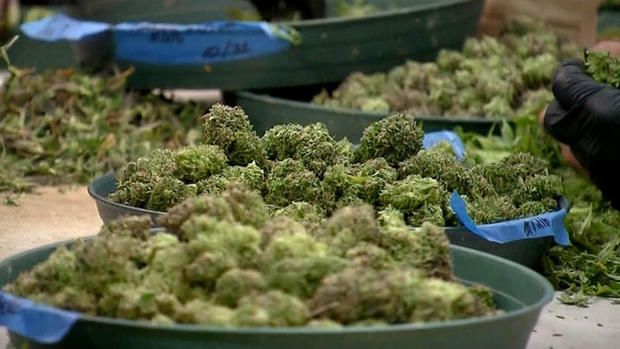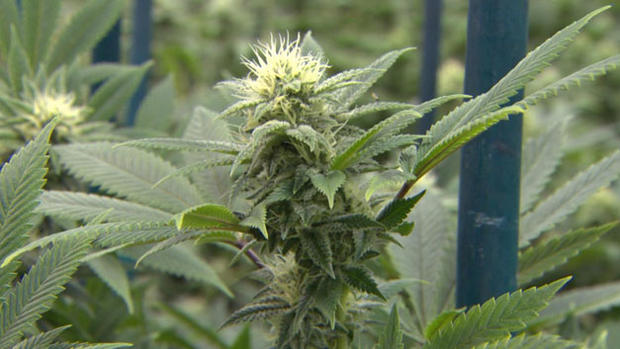Big Changes Or Small Tweaks? Lawmakers To Revisit Mass. Pot Law
BOSTON (AP) — Legislative leaders have made clear they are not through with making changes to the voter-approved recreational marijuana initiative, but it remains to be seen whether future action amounts to an overhaul of or a mere tinkering with the new law.
A committee of House and Senate lawmakers will soon be named to consider potential revisions and make recommendations to the full Legislature.
Marijuana backers are watching closely to see whether the panel's makeup tilts toward members who opposed the November ballot question, or those who were supportive. That could offer a hint as to how significant any changes might be.
The Legislature bought itself more time last month by postponing key deadlines related to retail sales of recreational marijuana by six months.
A look at just some of the issues the committee might weigh:
TAXES
The law calls for a 3.75 percent excise tax on recreational pot sales. Marijuana products will also be subject to the state's 6.25 percent sales tax and a local option sales tax of 2 percent, making for an effective maximum tax rate of 12 percent.
Many critics of the law say that's too low, and won't even cover regulatory costs.
States where recreational marijuana was previously legalized have substantially higher tax rates: Colorado, 29 percent; Washington, 37 percent; and Oregon, 25 percent.
Ballot measures recently passed by California and Nevada voters establish 15 percent tax rates, while Maine's new law is more in line with Massachusetts, imposing a 10 percent sales tax on marijuana.
Backers of the current Massachusetts law say they're open to higher taxes in the future, but argue that lower taxes initially will strengthen the legal marijuana market while weakening the illegal market.
They also note that some legal states in the west have lately been reducing, not raising their taxes.
LOCAL CONTROLS
While a few Massachusetts communities have signaled a willingness to put out the welcome mat for marijuana businesses, others are far more hesitant. So lawmakers may well debate how much control local officials should have over pot shops.
The law allows cities and towns to place "reasonable safeguards on the operation of marijuana establishments," but they cannot, without voter approval, prohibit stores totaling fewer than 20 percent of the liquor stores in their community. For example, if a town has 10 liquor stores, it must allow at least two pot shops.
One possibility would be to reverse the procedure and require local voters to opt in if they want retail marijuana stores, rather than opt out if they don't want them.
HOMEGROWING
Democratic Senate President Stan Rosenberg, who supported passage of the ballot question, is among those calling on lawmakers to reconsider how much pot people can grow in their homes. The law allows individuals to grow up to six marijuana plants in their homes, with a household limit of 12 plants.
Rosenberg has suggested those ceilings be lower, though he hasn't said by how much. Arguments against home growing include the potential for the pot to be sold to the underground market.
One emerging consensus, however, is that lawmakers will have a much tougher time changing parts of the law that have already taken effect, including homegrown pot.
POTENCY AND EDIBLES
The law is silent on potency restrictions for legal marijuana products. Will it remain silent?
Many studies have pointed to marijuana being more potent than when baby boomers were toking in their college days.
Republican Gov. Charlie Baker is among those suggesting the Legislature consider limits on the concentration of THC, the psychoactive chemical in marijuana, in edible forms of the drug that will be legal to sell in Massachusetts. Marijuana-fused edibles, including such products as brownies and candy, are considered the fastest-growing component of the recreational market.
Sponsors of the ballot question say legislators need not take action because the law empowers the yet-to-be-appointed Cannabis Control Commission to adopt strict rules for the sale, packaging and labeling of recreational pot.






